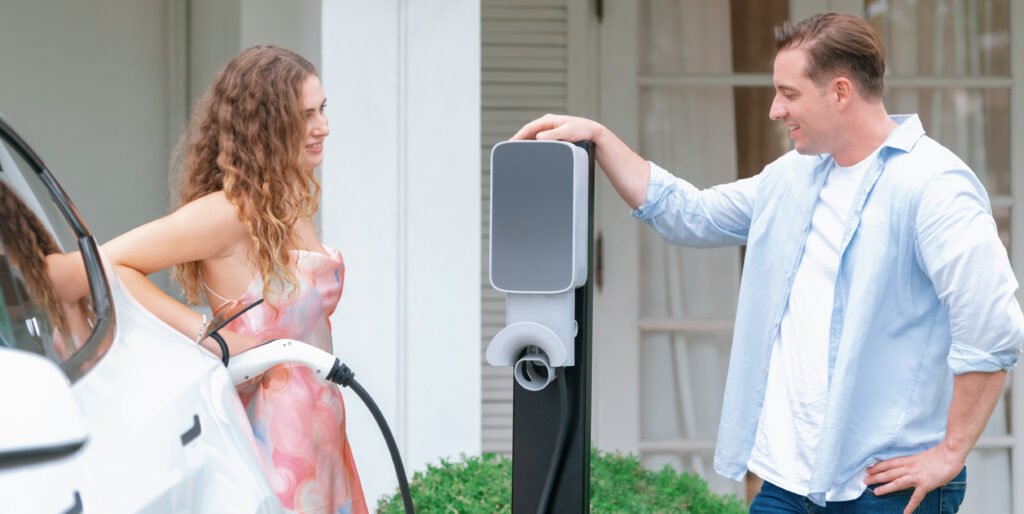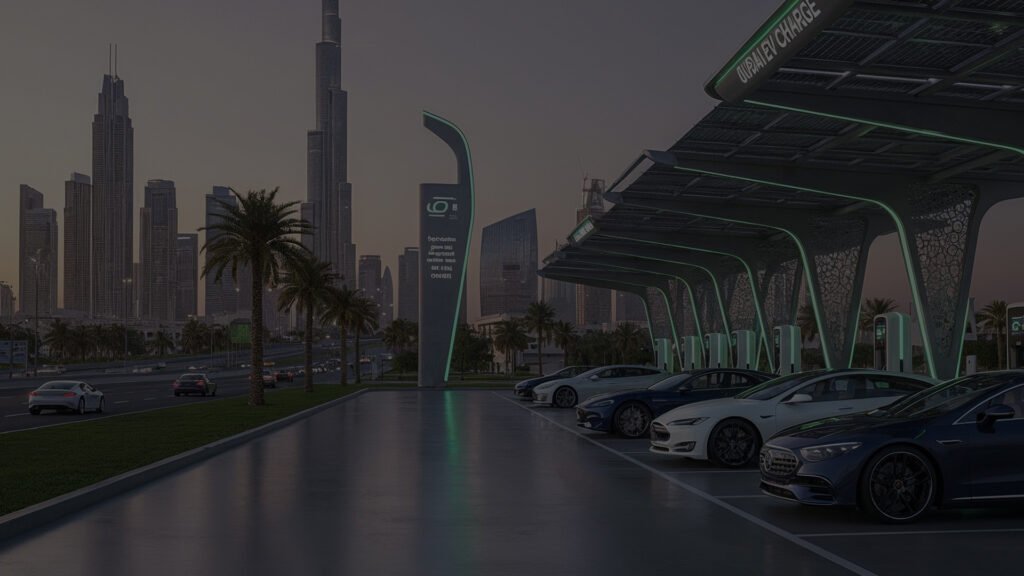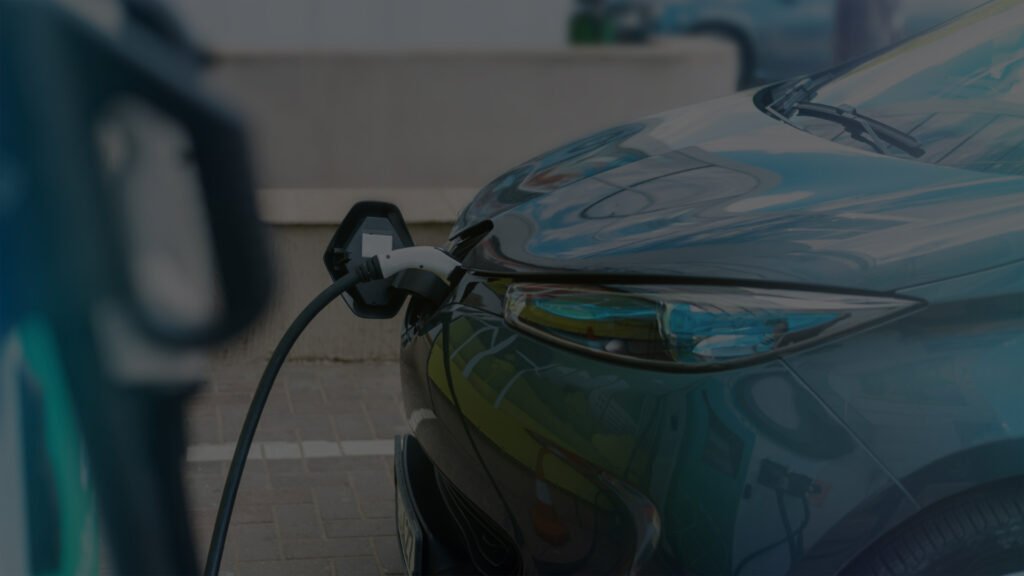As electric vehicles transform Abu Dhabi’s streets, home charging has become the cornerstone of sustainable and cost-effective EV ownership. With electricity rates in Abu Dhabi among the most competitive in the GCC region – averaging just 0.23 AED per kilowatt-hour for residential users – the financial advantages of charging your EV at home are becoming increasingly clear. Recent studies by the Abu Dhabi Department of Energy show that EV owners who opt for home charging can save up to 70% on their annual vehicle energy costs compared to traditional fuel expenses.
The landscape of EV charging in Abu Dhabi is evolving rapidly, with the emirate’s ambitious Vision 2030 setting a target of 42,000 electric vehicles on the road by the end of the decade. This transformation is backed by substantial investment in charging infrastructure, with particular emphasis on making home charging solutions more accessible to residents. According to ADNOC Distribution’s latest market analysis, the installation of home charging stations increased by 156% in 2024 alone, reflecting growing consumer confidence in residential charging solutions.
For prospective and current EV owners in Abu Dhabi, understanding the cost implications of different charging options has never been more crucial. While public charging stations offer convenience for long-distance travel, the economics of daily charging present a compelling case for home-based solutions. In this comprehensive guide, we’ll analyze the real costs of home charging versus public charging, examine the latest technologies shaping residential EV infrastructure, and help you make an informed decision that could save you thousands of dirhams annually while contributing to Abu Dhabi’s sustainable future.
Home Charging vs. Public Charging: Which is Cheaper for Your Electric Car?
Are you weighing the financial implications of different charging options for your electric vehicle? As the EV market continues to expand, understanding the cost dynamics between home charging and public charging stations has become increasingly crucial for owners and prospective buyers alike. In this comprehensive analysis, we’ll explore the real costs associated with both charging methods, helping you make an informed decision that could significantly impact your long-term EV ownership expenses.
Understanding Home Charging Economics
Home charging represents the most straightforward and typically most economical approach to keeping your electric vehicle powered. When you charge your EV at home, you’re paying your standard residential electricity rate, which generally ranges from $0.10 to $0.15 per kilowatt-hour (kWh). This fundamental advantage forms the foundation of home charging’s cost-effectiveness. For a typical electric vehicle with a 60 kWh battery capacity, a full charge at home would cost between $6 and $9, translating to annual charging costs of $450 to $675 based on 15,000 miles of driving.
The initial setup for home charging does require an upfront investment. Installing a home charging station typically costs between $500 and $2,500, depending on your home’s electrical infrastructure and the complexity of the installation. However, this one-time expense often pays for itself through consistent savings on charging costs. Many homeowners find additional value in their charging installation through increased property values and the convenience of charging while they sleep.
The Public Charging Landscape
Public charging infrastructure operates on a different cost model, with prices varying significantly based on the charging speed and location. Level 2 AC charging stations, commonly found in shopping centers and parking garages, typically charge between $0.20 and $0.30 per kWh. This means a full charge for our example 60 kWh vehicle would cost $12 to $18, resulting in annual costs between $900 and $1,350 for the same 15,000 miles of driving.
DC fast charging, while offering the convenience of rapid charging, comes at a premium. These stations usually charge between $0.40 and $0.60 per kWh, pushing the cost of a full charge to $24-$36. If you relied solely on DC fast charging for your annual driving needs, you could be looking at costs between $1,800 and $2,700 per year. This significant price difference highlights the importance of understanding your charging options and planning accordingly.
Real-World Cost Implications
To put these numbers into perspective, let’s consider a typical EV owner’s scenario. Assuming a daily commute of 40 miles and monthly mileage of 1,250 miles, using a vehicle with a 60 kWh battery and energy efficiency of 3.5 miles/kWh, the cost differences become quite striking. Home charging would result in monthly electricity costs between $37.50 and $56.25, plus minimal utility fees of $5-$10. When you factor in the amortized installation cost over two years ($20.83 per month), the total monthly expense ranges from $63.33 to $87.08.
In contrast, relying primarily on public charging for the same usage pattern would cost between $75 and $112.50 monthly for charging alone. Adding typical membership fees ($5-$15) and occasional parking fees ($10-$20) brings the monthly total to $90-$147.50. Over a five-year period, this difference amounts to potential savings of $1,600 to $3,625 by choosing home charging as your primary charging method.
Cost-Influencing Factors
Several key factors can significantly impact your actual charging costs. Local electricity rates vary considerably by region and time of day, with many utilities offering special EV charging rates or time-of-use pricing that can substantially reduce your charging costs. Seasonal variations in electricity rates and vehicle efficiency also play a role, as do charging frequency and available local incentives for EV charging installation.
Optimizing Your Charging Strategy
The most cost-effective approach to EV charging typically involves a strategic combination of charging methods. While home charging should serve as your primary charging solution, judicious use of public charging can help optimize your overall costs. Installing a smart home charger allows you to take advantage of off-peak electricity rates, while occasional use of public charging stations during free charging promotions or when combined with other activities can help minimize your total charging expenses.
Consider integrating solar panels with your home charging setup if feasible, as this can further reduce your charging costs while improving your environmental impact. Many utilities offer special rates for EV owners, and some regions provide incentives for home charging installation, making the initial investment more manageable.
Environmental and Practical Considerations
Beyond pure cost considerations, home charging often provides environmental benefits through the use of cleaner grid power and the potential for solar integration. The reduced travel specifically for charging purposes also contributes to a lower overall carbon footprint. From a practical standpoint, home charging eliminates the time spent seeking and waiting for public chargers, adding considerable convenience to your EV ownership experience.
Making Your Decision
The decision between home and public charging ultimately depends on your specific circumstances, including your access to home charging installation, local electricity rates, daily driving patterns, and long-term residence plans. For most EV owners, establishing a home charging solution proves to be the most cost-effective long-term strategy, with public charging serving as a valuable supplement for longer trips or unexpected charging needs.
While the initial investment in home charging equipment may seem substantial, the long-term savings and convenience make it a compelling choice for most EV owners. By carefully considering your charging options and implementing a strategic approach to charging, you can significantly reduce your EV operating costs while enjoying the many benefits of electric vehicle ownership.
How Much Does it Cost to Charge an Electric Car at Home?
The cost of charging an electric car at home primarily depends on your local electricity rates and your vehicle’s battery capacity. In most regions, residential electricity rates range from $0.10 to $0.15 per kilowatt-hour (kWh). For a typical electric vehicle with a 60 kWh battery, a full charge from empty would cost between $6 and $9. This translates to roughly $30-45 per month for an average driver covering 1,000 miles, making home charging significantly more economical than traditional fuel costs. Many utility companies also offer special time-of-use rates for EV owners, which can further reduce charging costs by up to 50% when charging during off-peak hours.
While home charging requires an initial investment in equipment and installation, these costs are typically offset by long-term savings. A Level 2 home charging station usually costs between $500 and $2,500 to install, depending on your home’s electrical setup and local labor rates. However, many regions offer incentives and tax rebates that can significantly reduce these upfront costs. Once installed, the average annual home charging costs for an EV driven 15,000 miles range from $450 to $675 – a fraction of what most people spend on gasoline for conventional vehicles. Additionally, many homeowners can further reduce their charging costs by installing solar panels or taking advantage of utility company promotions and discounts.
How Much Does it Cost to Charge an Electric Car at a Public Station?
The cost of charging an electric car at public stations varies significantly depending on the charging network, location, and charging speed offered. Public charging stations typically operate on either Level 2 AC charging or DC fast charging technologies, with prices structured differently across providers. Level 2 charging costs generally range from $0.20 to $0.30 per kilowatt-hour (kWh), making a full charge for a typical 60 kWh battery cost between $12 and $18. However, these rates can fluctuate based on factors like peak-hour pricing, membership status, and regional electricity costs. Some locations may also charge by time rather than energy consumed, typically ranging from $1 to $3 per hour, which can impact the total cost depending on your vehicle’s charging speed.
DC fast charging, while offering the convenience of rapid charging, comes at a premium price point. These stations usually charge between $0.40 and $0.60 per kWh, meaning a full charge could cost anywhere from $24 to $36. Additional fees may apply, such as parking charges, idle fees for staying connected after charging is complete, or session initiation fees. Many charging networks offer membership programs that can reduce these costs through discounted rates or monthly subscriptions, typically priced between $5 and $15 per month. For frequent public charging users, the annual cost can range from $900 to $2,700, depending on charging habits and the type of chargers used. It’s worth noting that some locations, like shopping centers or workplaces, may offer free charging as an amenity to attract customers or benefit employees, providing opportunities to offset these costs.
What is the Cheapest Way to Charge an Electric Car?
The most economical way to charge an electric car is through a combination of strategic home charging and opportunistic use of free public charging stations. Home charging during off-peak hours typically costs between $0.10 to $0.15 per kilowatt-hour, making it the foundation of cost-effective EV charging. By programming your vehicle to charge during these off-peak periods, usually between midnight and 5 AM, you can save up to 50% on charging costs compared to standard electricity rates. Additionally, many utility companies offer special EV charging rates or time-of-use plans that can further reduce costs. For maximum savings, consider installing solar panels, which can bring your charging costs close to zero after the initial investment is recovered. Some homeowners report charging costs as low as $30-40 per month for regular commuting when combining solar power with off-peak charging.
Beyond home charging, several strategies can help minimize your charging expenses. Take advantage of free charging stations at shopping centers, workplaces, and public parking facilities – many businesses offer complimentary charging to attract customers. Consider signing up for charging network memberships that provide discounted rates, especially if you frequently use public charging stations. Some networks offer promotional periods with reduced rates or free charging hours. Apps like PlugShare and ChargePoint can help you locate free or discounted charging stations along your regular routes. For occasional long-distance travel, plan your route around charging stations at hotels or restaurants that offer free charging for patrons. By combining these approaches – primarily relying on off-peak home charging, utilizing solar power when possible, and strategically using free public charging options – you can significantly reduce your EV charging costs to a fraction of what you’d spend on gasoline for a conventional vehicle.
Ready to embrace the future of electric vehicle charging in Abu Dhabi? GO EV Charger stands as the UAE’s leading provider of premium EV charging solutions, delivering excellence in both residential and commercial installations. Our chargers are meticulously designed and certified by ADQCC in Abu Dhabi, ensuring the highest standards of safety and performance for your charging needs. With an impressive range of AC chargers offering 7kW, 11kW, and 22kW options, we provide the perfect solution for every EV owner’s requirements.
Understanding the unique challenges of the UAE climate, we’ve engineered our chargers to excel in local conditions. Each unit comes with an IP65 & IK10 rating for superior durability while featuring advanced OCPP 1.6 JSON & 2.0.1 compatibility for seamless smart system integration. Our commitment to quality is backed by a comprehensive 3-year warranty, which can be extended for additional peace of mind. Our professional installation team ensures a smooth setup process, while our ongoing support guarantees a reliable charging experience for years to come.
Ready to Transform Your EV Charging Experience?
Make the smart choice for your home charging needs with GO EV Chargers, your trusted Home EV Charger in Abu Dhabi. Take advantage of our limited-time installation package that includes:
✓ Free site assessment and consultation ✓ Professional installation by certified technicians ✓ 3-year comprehensive warranty ✓ Ongoing maintenance support ✓ 24/7 technical assistance.
📞 Call: +971 50 4948421
📧 Email: info@goevchargers.ae
🌐 Visit: www.goevchargers.com
Book now and enjoy our exclusive installation package with extended warranty options. Let’s power your journey toward sustainable transportation together.






